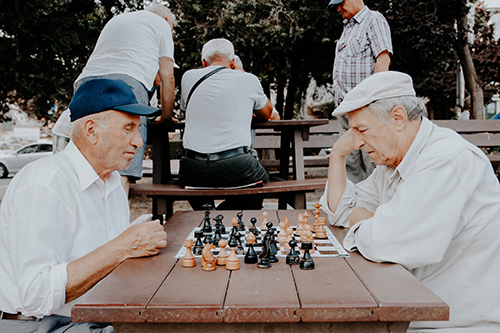Stay Active, Connected and Healthy As We Age
Tips to stay active, connected and healthy as we age. Social connection is essential for not only a healthy lifestyle but helping to maintain our overall well being. Unfortunately, as we grow older, we overlook the importance of staying socially connected. This is critical as isolation and loneliness are associated with poor health and higher rates of mortality. There is strong evidence that suggests the effect of social isolation on health is of similar magnitude to other health risks such as high blood pressure, smoking, and obesity. Seniors, in particular, are vulnerable to social isolation because established relationships change over time. For example, children grow up and move away. Friends relocate or pass away. Mobility may become an issue and motivation to remain social wanes. According to a CVS study Path to Better Health, 1 in 4 adults aged 65 and older no longer have friends or family nearby and don’t know where to meet new people.
The potential health impact of loneliness is alarming especially for older adults. One of the root causes of loneliness can be the perception that other people have rejected you or don’t care about you. People who are lonely convey negativity or push others away because of perceived rejection, which only reinforces their isolation. For total health – body, mind, and spirit – seniors must be active at seeking out social interaction. Dr. Robert Mirsky, Chief Medical Officer for Aetna Medicare, helps seniors live the life they want to live at home and in their communities. He shares some great tips to help you stay socially and emotionally healthy.
Get Connected
Many programs exist to help seniors connect. Local senior centers, for example, have daily planned activities and typically put their calendar of events online. Do they have a chess club? A book club? A fun museum trip planned? See if anything interests you. Look for volunteer opportunities with your church. Check the library for teaching programs such as help with technology, for example. This could help you connect with grandkids and family from a distance. Keep an open mind as you brainstorm ways to connect. Losing interest in socialization is common as we grow older. The negative outcomes and mortality rates from isolation, however, are far too great to stay in that mindset. Question your assumptions and if possible seak behavior therapy to help you identify negative patterns of behavior and thoughts that impact your emotions and beliefs.
Get Active
Start by making a list of physical activities that you enjoy doing. Do you like hiking, taking a group exercise class, or golfing? Senior centers have group activities like yoga or pickleball that get you active and meet new people. Participation in the popular program, SilverSneakers, has been shown to improve health outcomes by reducing loneliness and isolation by 20-25%, according to research. SilverSneakers also hosts classes called “Beyond the Gym,” at community centers, churches, parks, and also offers online classes. Adopting a pet can also open opportunities for activity and interacting with others. Many studies have proven that pet ownership reduces loneliness and stress while improving overall well-being and happiness. Check out the Seniors for Seniors program which places senior pets with senior citizens.
Got Medicare Questions?
We hope that this information on staying active and connected as you age is useful to you.
Let us help you answer your questions so that you can get back to the activities that you enjoy the most.
Call (888) 446-9157, click here to get an INSTANT QUOTE, or leave a comment below!
See our other websites:


